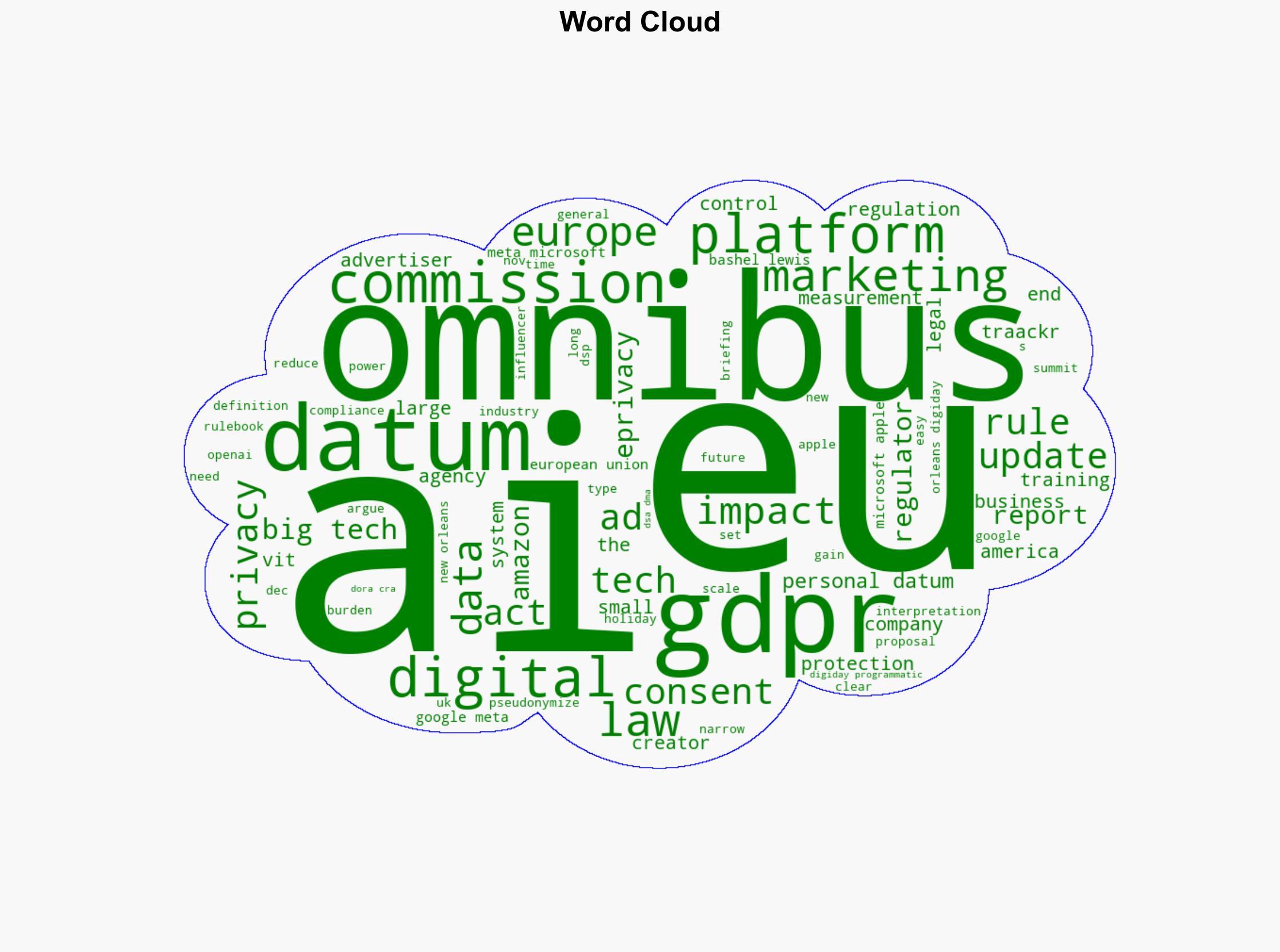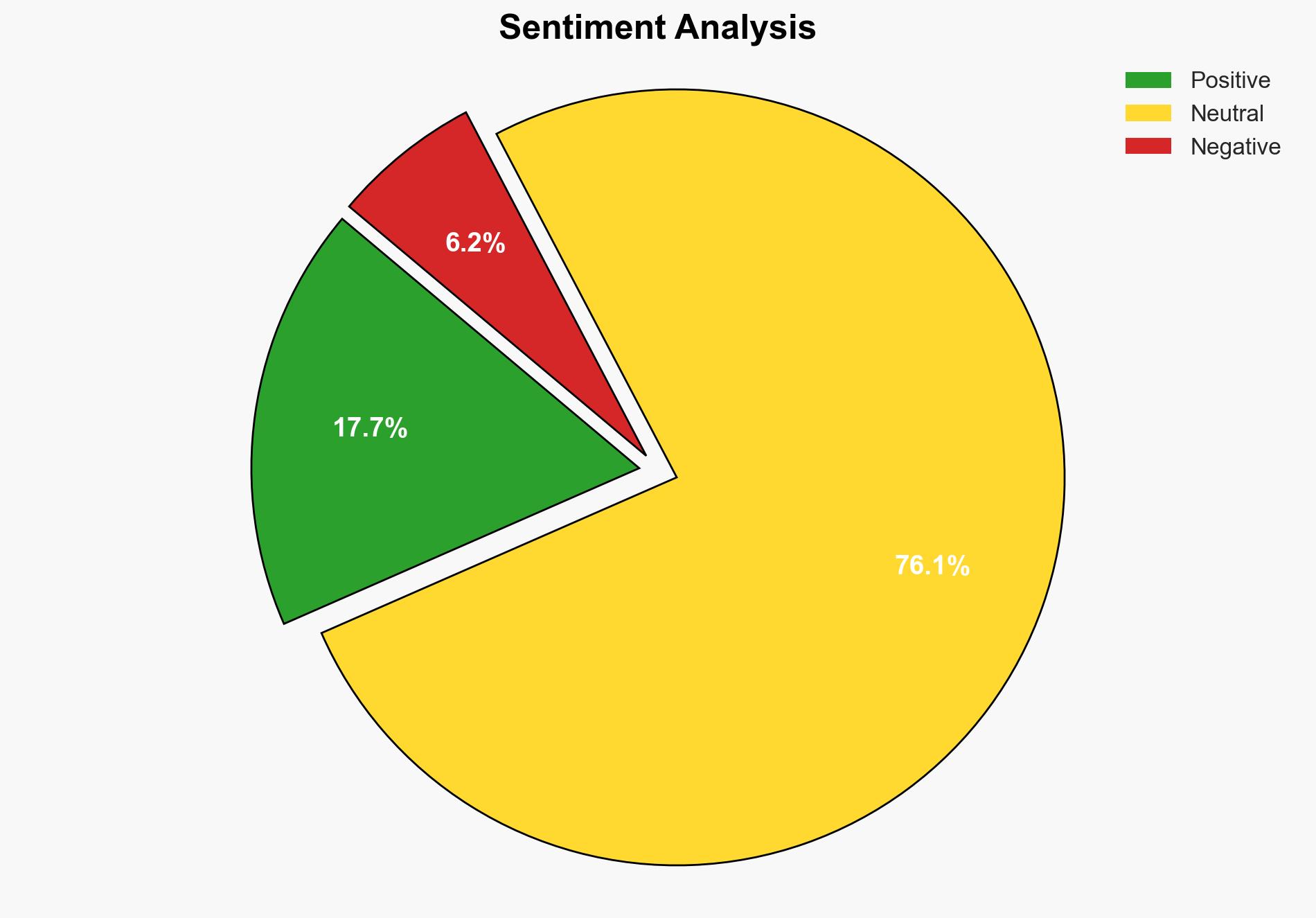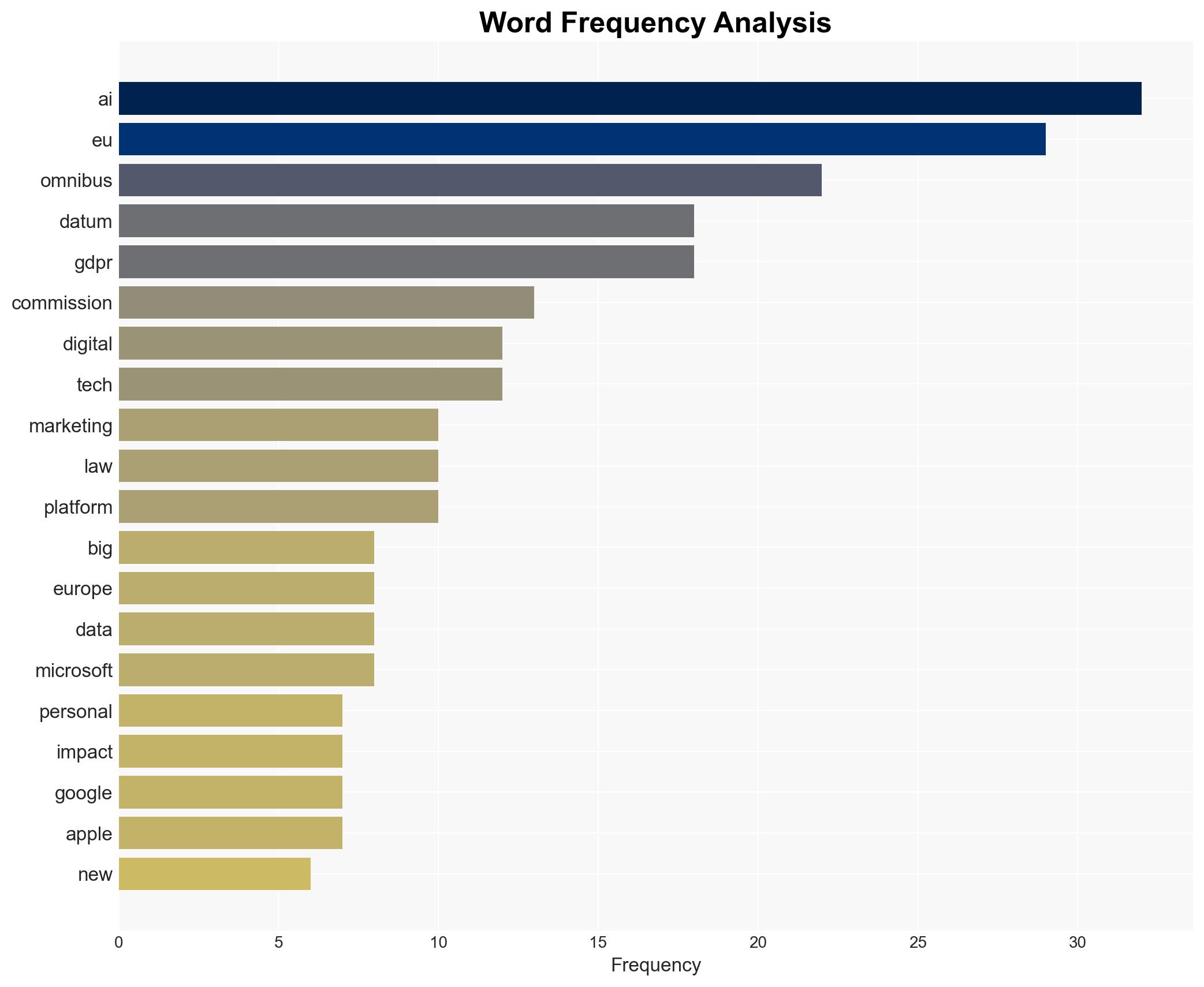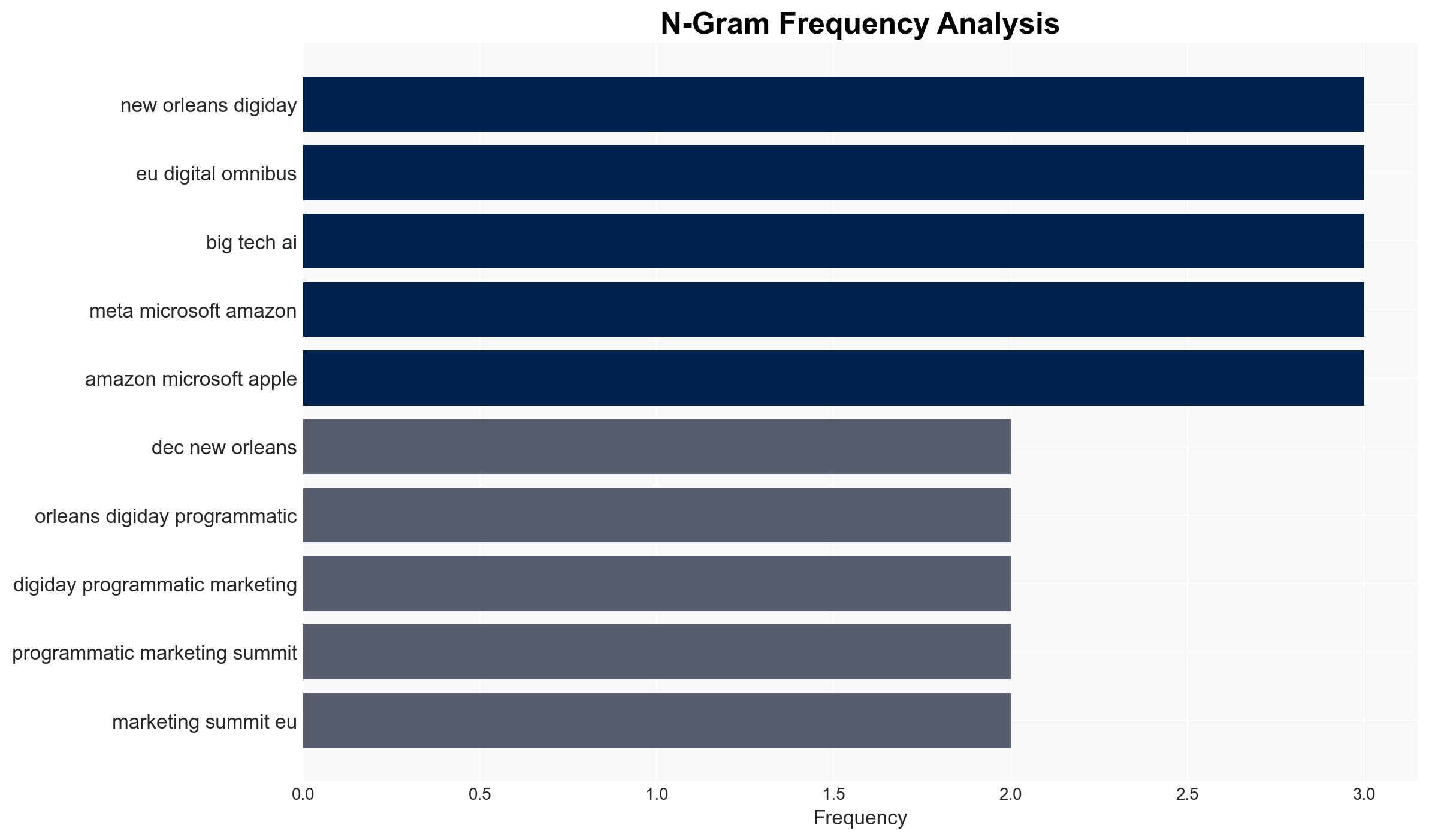The EUs Digital Omnibus offers relief for ad tech but hands more power to Big Tech and AI agents – Digiday
Published on: 2025-11-21
AI-powered OSINT brief from verified open sources. Automated NLP signal extraction with human verification. See our Methodology and Why WorldWideWatchers.
Intelligence Report: EU’s Digital Omnibus Impact on Ad Tech and Big Tech
1. BLUF (Bottom Line Up Front)
The EU’s Digital Omnibus proposal, while offering relief to ad tech firms by simplifying regulations, inadvertently strengthens the position of Big Tech and AI developers. The most supported hypothesis is that the Omnibus will create a more competitive environment for AI development but could entrench the dominance of large tech firms. Confidence Level: Moderate. Recommended action: Monitor regulatory developments and advise smaller ad tech firms on strategic compliance and competitive positioning.
2. Competing Hypotheses
Hypothesis 1: The Digital Omnibus will primarily benefit ad tech firms by reducing regulatory burdens, thus fostering innovation and competition within the EU’s digital economy.
Hypothesis 2: The Digital Omnibus will disproportionately benefit Big Tech companies by legitimizing large-scale data collection and AI training, potentially stifling competition from smaller firms.
Hypothesis 2 is more likely due to the inherent advantages larger firms have in adapting to and exploiting regulatory changes, as well as their existing infrastructure for large-scale data operations.
3. Key Assumptions and Red Flags
Assumptions include the belief that regulatory simplification will lead to a level playing field and that smaller firms can effectively leverage these changes. Red flags include the potential for regulatory capture by Big Tech and the risk of overly narrow interpretations of data protection laws that could entrench existing market leaders. Deception indicators might involve public statements from Big Tech downplaying their competitive advantage under the new regulations.
4. Implications and Strategic Risks
The primary risk is the entrenchment of Big Tech’s dominance, which could lead to reduced competition and innovation in the ad tech sector. Politically, this could result in increased scrutiny and calls for further regulation. Economically, smaller firms may struggle to compete, potentially leading to market consolidation. Cyber risks could arise from increased data collection and processing, necessitating robust security measures.
5. Recommendations and Outlook
- Encourage smaller ad tech firms to form alliances or partnerships to better compete with larger entities.
- Advocate for clear guidelines and support from the EU to ensure smaller firms can benefit from the Omnibus.
- Monitor Big Tech’s compliance and adaptation strategies to identify potential regulatory gaps or abuses.
- Best-case scenario: A balanced competitive environment fostering innovation across firms of all sizes.
- Worst-case scenario: Market consolidation under Big Tech, stifling competition and innovation.
- Most-likely scenario: Incremental benefits for smaller firms, with significant advantages accruing to larger entities.
6. Key Individuals and Entities
European Commission, Google, Meta, Microsoft, Amazon, OpenAI.
7. Thematic Tags
Cybersecurity, Regulation, Big Tech, Ad Tech, AI Development
Structured Analytic Techniques Applied
- Adversarial Threat Simulation: Model and simulate actions of cyber adversaries to anticipate vulnerabilities and improve resilience.
- Indicators Development: Detect and monitor behavioral or technical anomalies across systems for early threat detection.
- Bayesian Scenario Modeling: Quantify uncertainty and predict cyberattack pathways using probabilistic inference.
- Narrative Pattern Analysis: Deconstruct and track propaganda or influence narratives.
Explore more:
Cybersecurity Briefs ·
Daily Summary ·
Support us





